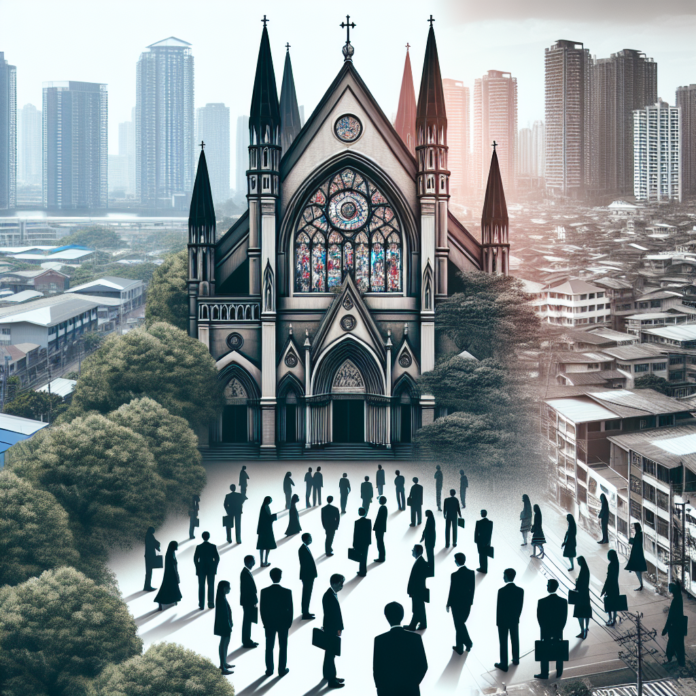Preserving Religious Integrity: Why the Catholic Church Shouldn’t Enter Politics
In the grand tapestry of human history, religion and politics have often been entangled. From medieval kingdoms to modern nation-states, the intertwining threads have sculpted societies and guided moralities. However, as the world progresses into an era driven by democratic values and human rights, a subtle yet imperative notion surfaces—religious institutions, particularly the Catholic Church, should retain their sanctity by refraining from direct political involvement.
This perspective gains significant momentum when considering the evolving role of the Catholic Church under the progressive leadership of Pope Francis. Under his papacy, the Church has notably embraced inclusivity, compassion, and a renewed focus on uplifting humanity, transcending archaic conservatism and stagnant traditionalism.
A History of Entanglement
The Middle Ages witnessed the Catholic Church deeply entrenched in political machinations. The Papal States were a sovereign entity, wielding temporal power, influencing kings, and engaging in warfare. While this period reflects the Church’s might, it also underscores a departure from its essential spiritual mission. The spiritual landscape was marred by conflicts of power and corruption, epitomized by events like the Avignon Papacy and the Great Schism.
Fast forward to the modern era, echoes of this entanglement can still be heard. For instance, in countries like Ireland, Poland, and Italy, the Church’s influence on politics has often sparked divisive debates, particularly around issues like abortion, birth control, and LGBTQ+ rights. Those adhering to a more conservative Catholic ideology have frequently sought to impose religious doctrines via the political sphere, thus reigniting tensions and marginalizing diverse perspectives.
The Pitfalls of Conservative Catholicism
The conservative faction within Catholicism, exemplified by the resurgence of traditional Latin Mass and stringent adherence to pre-Vatican II practices, often appears out of sync with contemporary ethical landscapes. These elements can foster an exclusionary environment, alienating progressive voices and discouraging dialogue that could lead to a richer, more inclusive understanding of faith.
Pope Francis’s stance against these regressive movements has not been subtle. His papacy symbolizes a shift towards acknowledgment of modern realities and a willingness to engage constructively with contemporary social issues. For instance, his encyclicals "Evangelii Gaudium" and "Laudato Si’" champion economic justice and environmental stewardship—both cornerstones of a progressive ethic that transcends mere dogma.
The Wisdom in Separation
Why should the Catholic Church avoid direct political involvement? The primary argument lies in preserving its spiritual integrity and universality. Politics, by nature, is transient and divisive. Engagement often necessitates compromise, partisanship, and contentious dialogue—dynamics that can erode a religious institution’s moral standing and distract from its spiritual mission.
Moreover, the global Catholic community is incredibly diverse, encompassing various cultures, socio-economic backgrounds, and political philosophies. An overtly political Church risks alienating segments of its own congregation, fostering division rather than unity. By prioritizing spiritual teachings and moral guidance that transcend political allegiances, the Church can better serve its universal flock.
Embracing Progressive Values
Embracing progressive values does not imply a departure from core religious tenets but rather a reimagining of how these teachings engage with contemporary society. Pope Francis’s actions provide substantial evidence of the benefits of this approach. His unequivocal dedication to addressing climate change, promoting social equity, and advocating for the marginalized embody a progressive lens that aligns with universal human rights principles.
These efforts reflect a Church that is invested in global well-being rather than political dominion. For instance, the Vatican’s active participation in international climate agreements showcases a commitment to future generations, resonating with younger and secular audiences alike. This progressive stance fosters a broader coalition of support, transcending religious boundaries.
A Vision for the Future
As the world grapples with intricate challenges—climate change, social inequities, and global health crises—the role of the Catholic Church can be profoundly impactful if it remains steadfastly committed to its spiritual mission. By upholding values that reflect compassion, inclusivity, and respect for human dignity, the Church can offer moral clarity without the pitfalls of political entanglement.
Pope Francis’s leadership embodies this vision admirably. His call for a “Church of the poor” resonates across borders and speaks to a universal need for empathy and justice. This vision is not hindered by conservative constraints but is instead vibrant and inherently aligned with the best principles of human progress.
In conclusion, our journey through history and into the present reveals compelling reasons for the Catholic Church to distance itself from direct political involvement. By focusing on spiritual integrity and progressive values, the Church can more effectively inspire, heal, and unite. This approach not only honors its sacred mission but also ensures it remains a beacon of hope and compassion in an ever-evolving world.
